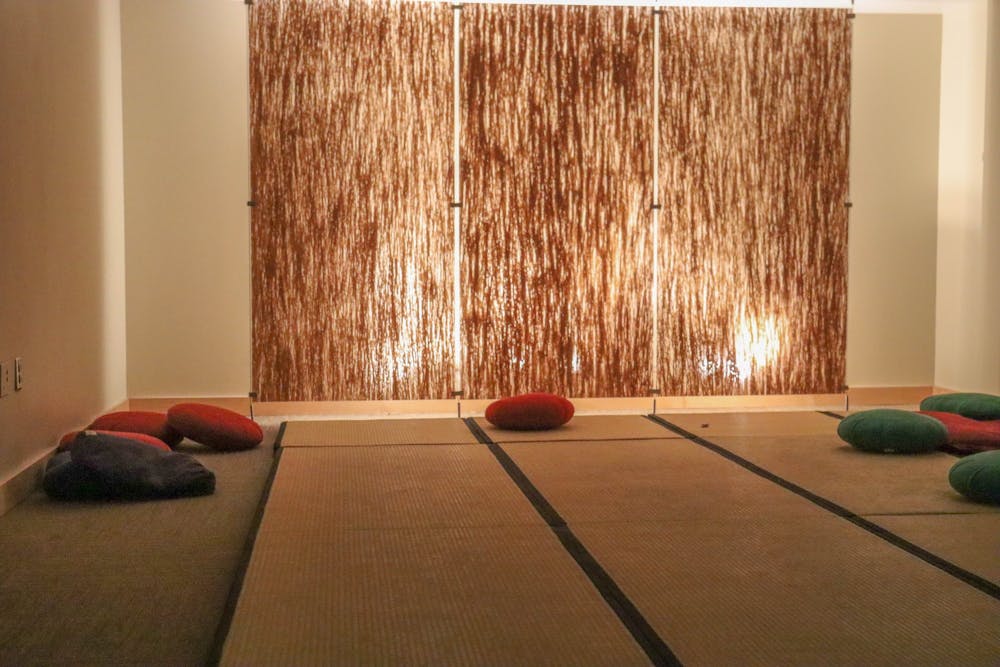College days are saturated with auditory, visual and mental noise; with clamoring students, pamphlets, advertisements and the stress of work. This noise clouds our ability to hear core emotions and thoughts, and limits our development.
Students can mature their core selves in silence and solitude.Whether it be walks in the woods or meditation, solitude and silence enable deep mindfulness — they are necessary for sincere creativity, spirituality and personal growth.
Just as it's important to reserve time for yourself, it's important that this time is ample. If we rush the time we have with ourselves and jump to conclusions about our emotions, it can be difficult to understand them in any deeper, meaningful way.
This is why in "Letters to a Young Poet," Rainer Maria Rilke reveres it as necessary for a creative life. He even writes that “works of art are of an infinite solitude.” Profound creativity relies on quiet, humble hours.
UNC professor and poet Sophie Klahr wrote most of her book "Two Open Doors in a Field" in the still fields of Marquette, Nebraska. Klahr said: “If I am too busy, then that prevents creativity. Busyness is loud. Creativity has to start in a quiet place then get its own engine. If I can’t hear my own engine, then nothing is going to happen.” For her, creativity requires privacy.
If silence and solitude power a receptivity necessary for creative life, they also drive spiritual and personal growth.
I find private meditation to be one of the best avenues for personal and spiritual ripening. It peels the layers of the self hidden in everyday life. Through my practice, I have been able to melt anxieties, discover what interests are vital to me and refine my values.
Habitual meditation may also inspire sympathy by revealing an interconnection between all things. Sitting in silence allows a person to define their relationship with the world. Such independent growth is not possible without solitude.
In Won Buddhism, silent meditation is central. Reverend WonGong is the head of the Won Buddhism Meditation temple in Chapel Hill. She told me: “the more we are in silence, the more we can connect with our inner calm.” She further noted that a busy life restricts our ability to monitor emotions, thoughts and interests. It seems then that silence and solitude are necessary for sincere development.



